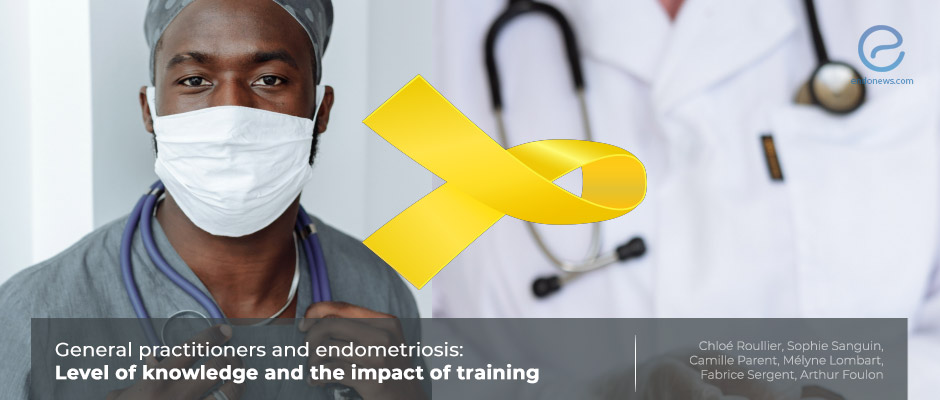Catching endometriosis from the front line: educating general practitioners
Oct 8, 2021
The knowledge of general practitioners on endometriosis decreases the number of delayed years to diagnosis
Key Points
Highlights:
- Endometriosis training on general practitioners’ education programs will increase endometriosis awareness and help patients get an early diagnosis.
Importance:
- General practitioners(GPs) are not aware enough about endometriosis that probably contributes to its diagnostic delay.
What's done here:
- A custom-made survey has been sent to 488 GPs by email for questioning their knowledge of endometriosis in northern France, 102 had completed.
- The survey had 25 questions, and demographic data, their gynecology and endometriosis education, the questions they would ask to diagnose endometriosis, the symptoms that they would relate to endometriosis, and the methods they would use to treat if they diagnose endometriosis were obtained.
Key Results:
- One-fourth of responders, of which almost two-thirds have had gynecology education lately, answered as ”they know enough about endometriosis”.
- One-fifth were following updated endometriosis guidelines.
- The most known symptoms referring to endometriosis among GPs were dyspareunia, dysmenorrhoea, and infertility.
- Almost none were aware of urinary and gastrointestinal symptoms that could be related to endometriosis.
- Sub-grouping of the participants based on gynecology training, the ones with an education knew and heard more about endometriosis compared to others.
Limitations:
- The study is limited to a very small region of Europe and has a very low number of applicants. High numbers of participation would highlight the importance of awareness among healthcare providers on endometriosis.
Lay Summary
It should be repetitively pronounced that "endometriosis is very common and it is very important to diagnose it as soon as possible before it causes lifelong damage to women’s lives".
The sooner the better concerning the diagnosis, and this is possible if the system is built to diagnose endometriosis by the front liners [general practitioners(GPs)].
The study conducted by Dr. Foulon's team in France questioned the effectiveness of GP knowledge on endometriosis. They have made a custom-built survey and reached 488 GPs by email. Only 102 have responded and were included in the study.
The survey was made of 25 questions including demographic data, the history of gynecology and endometriosis education, the questions they would ask to diagnose endometriosis, the symptoms that they would relate to endometriosis, and the methods they would use to treat if they diagnose endometriosis. Twenty-five percent of responders, most which have had gynecology education lately, answered the questions considering they know enough about endometriosis. One-fifth said they were following updated endometriosis guidelines.
The most known symptoms referring to endometriosis among GPs were dyspareunia, dysmenorrhea, and infertility while almost none were aware of urinary and gastrointestinal symptoms that could be related to endometriosis. When the authors sub-grouped the participants according to their gynecology training program history the ones with an education knew and heard more about endometriosis comparing to others.
According to these results, the researchers concluded as the training programs among GPs would help to raise awareness and help early diagnosis of women with endometriosis and suggested a nationwide education program would be helpful. This important study was published in the September 2021 issue of the "Journal of Obstetrics and Gynecology and Human Reproduction".
Research Source: https://pubmed.ncbi.nlm.nih.gov/34520875/
endometriosis education general practitioners

